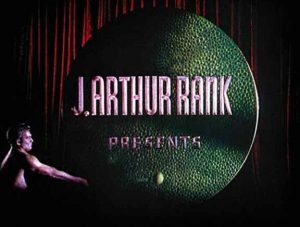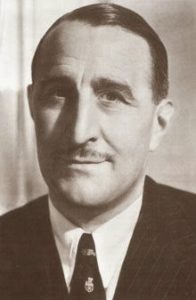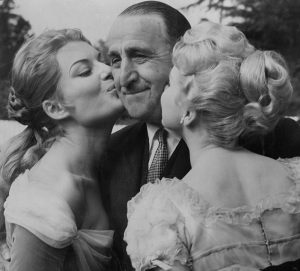 As a child growing up, one of the indelible memories of movie watching on television and at the cinema was the opening credits of movies made by British movie mogul J Arthur Rank.
As a child growing up, one of the indelible memories of movie watching on television and at the cinema was the opening credits of movies made by British movie mogul J Arthur Rank.
My memory has faded regarding the precise aspects of J Arthur Rank that my grandmother would talk of but it is entirely conceivable that she knew more of him than just his name.
Both of them hailed from the same area and were of the same generation, he a little older than her but perhaps the contemporary of one or more of her siblings. Both were connected to the food business.
 According to the Oxford Dictionary of National Biography – Baron (Joseph) Arthur Rank (1888-1972), flour miller and film-maker, was born on 22 December 1888, at Chestnut Villas, Holderness Road, Drypool, near Kingston upon Hull.
According to the Oxford Dictionary of National Biography – Baron (Joseph) Arthur Rank (1888-1972), flour miller and film-maker, was born on 22 December 1888, at Chestnut Villas, Holderness Road, Drypool, near Kingston upon Hull.
Rank was the youngest of three sons and sixth of eight children of Joseph Rank (1854-1943), and his wife, Emily Voase (c.1855-1916). Born with a silver spoon in his mouth and the son of a powerful Lancashire industrialist, he was gifted £1 million by his father in 1920.
 Arthur Rank had a profound respect for his father despite being labeled “a dunce” by him. He worked in his father’s flour mill and then worked in London before spending six months on the London corn exchange. He did a year’s apprenticeship in Luton, eighteen months working on all the milling processes at his father’s new mill in London, and finally a year on production at his Clarence mills in Hull. He became a director in 1915. Aged 27.
Arthur Rank had a profound respect for his father despite being labeled “a dunce” by him. He worked in his father’s flour mill and then worked in London before spending six months on the London corn exchange. He did a year’s apprenticeship in Luton, eighteen months working on all the milling processes at his father’s new mill in London, and finally a year on production at his Clarence mills in Hull. He became a director in 1915. Aged 27.
Shortly after the outbreak of the first world war in 1914 he enlisted in an army ambulance unit, and drove a converted Panhard taxi on the western front. Promoted to sergeant, he was put in charge of twenty ambulances. He developed an aptitude for signalling and was labeled an ‘expert’. He reached the rank of captain in the Royal Field Artillery and was eventually withdrawn from the army in 1917 to organize women’s labour in his father’s mills.

After the war Rank’s father bought for him a firm known as Peterkin’s Self-Raising Flour, which sold pastries and jams, but this venture was unsuccessful. After selling out Arthur worked in the milling side of his father’s business and took charge of its diversification into the production and sale of branded animal feeds.
When the company floated in 1933 he became joint managing director.
Described as completely ordinary, with black hair brilliantined back flat, and a nondescript tweaky moustache he was characterised as quick moving but slow talking, so that any conversation with him was liable to degenerate to a series of wordless gaps; tall, but stooping slightly from the waist.
A resolute tea-totaller but he reputedly became a lurid swearer during the war, and apparently retained this habit for years afterwards though he was never blasphemous. He had a superb memory for detail and a great power of compartmentalizing his life and interests, apparently, and enjoyed practical jokes.
Rank shared his father’s ardent Methodism. From 1919 he taught at the Methodist Sunday school at Reigate, he bought the Methodist Times (1925), and became president of the National Sunday School Union (1929). It was in Reigate that he apparently took up the idea of cinema.